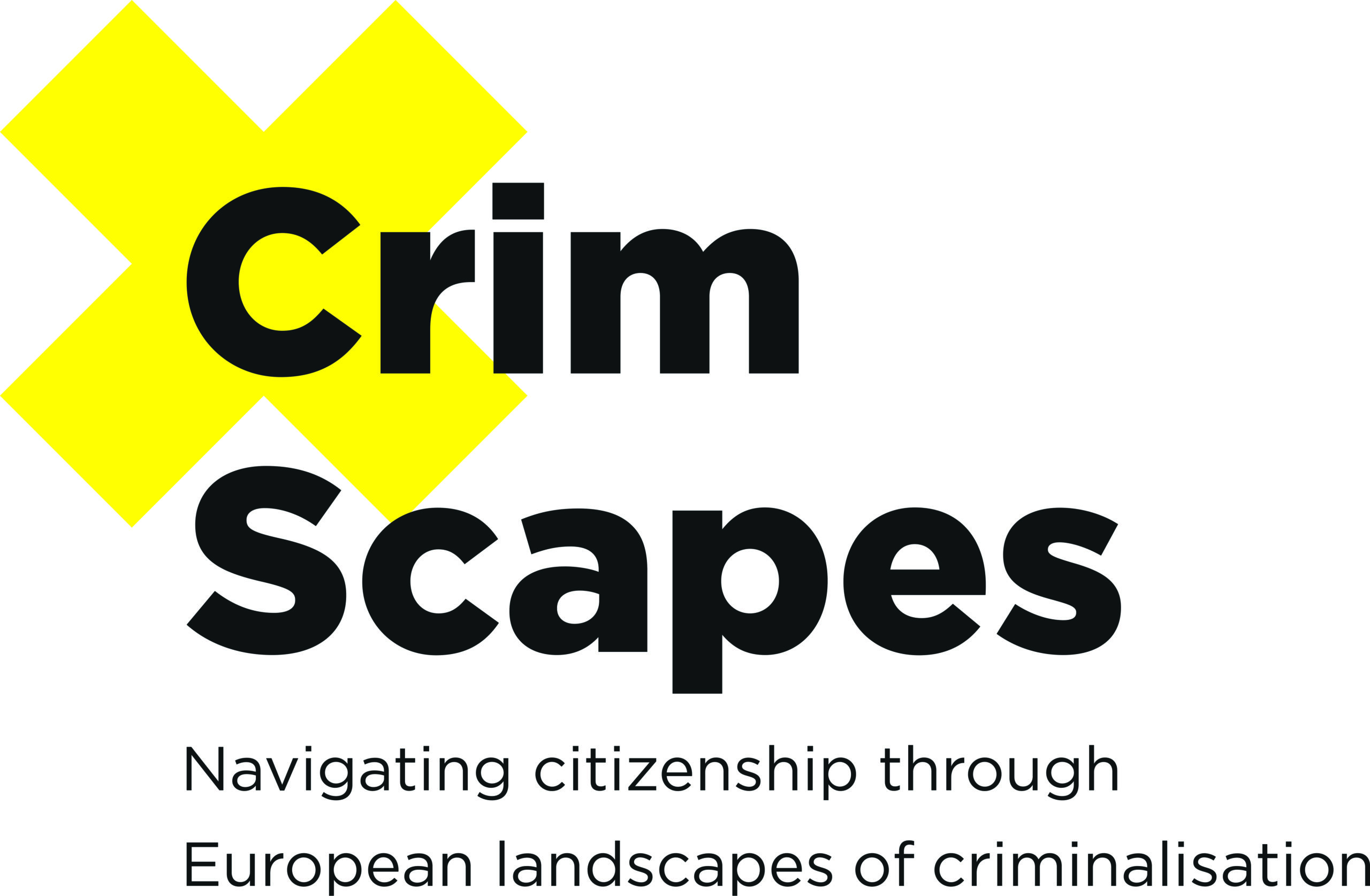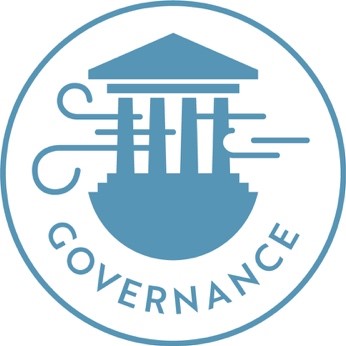
The CrimScapes research project (2020-2023) explores the growing mobilisation of criminal law, crime control measures and imaginaries of (il)legality as both responses to, and producers of, the politics of threat and uncertainty that are currently expanding across the European region. It works to analytically grasp the motivations behind, and challenges and implications of, criminalisation for the variety of actors and practices that (re-)shape entangled landscapes of criminalisation around ![]() abortion,
abortion, ![]() drug use,
drug use, ![]() hate speech,
hate speech, ![]() infectious diseases,
infectious diseases, ![]() sea rescue,
sea rescue, ![]() sex work, and
sex work, and ![]() women’s prisons.
women’s prisons.
CrimScapes is a joint project realised by 11 researchers of four universities, namely Humboldt Universität zu Berlin, Jagiellonian University in Krakow, Unversité Paris Saclay and University of Helsinki. The project is funded by the New Opportunities for Research Funding Agency Cooperation in Europe (NORFACE) Governance.
 Research
Research

ABORTION. The first research project explores the criminalization of abortion in Poland as a dynamic, evolving phenomenon, engaging ideas of citizenship, autonomy, new social movements and protests, contradictory discourses and images as well as actual bodily practices. The project focuses on under-researched aspects of activist responses to abortion criminalization, namely destigmatization and demedicalization, connected to the use of abortion pills. The research is conducted by Dr. Agata Chełstowska, Institute of Sociology (Jagiellonian University in Krakow).
DRUG USE. A second research project explores the criminalisation of drug use by analysing the paths of social construction of drugs in public discourse and the legal measures and enforcement strategies that target the use of psychoactive substances in Poland. The research then explores how the criminalisation of drug use is experienced and navigated by people who use drugs and advocates for harm reduction in Poland. The research investigates complex relationships between the state and its citizens through notions of violence, subjectivity, resistance and agency focusing on the possibilities of self-organising in the context of criminalisation.
This research is conducted by Jusytna Struzik from the Institute of Sociology (Jagiellonian University in Krakow) with the support of the Social Drug Policy Initiative.
HATE SPEECH. A third project investigates how law enforcement strategies are deployed and monitored in entangled semi-public and private spaces. Following an EU framework for criminalising hate speech, it focuses on the regulation, monitoring and (re-)definition of hate speech online in the European Union and, in particular, in Germany by private companies and NGOs, and asks how this practice mediates the relations between governing bodies, the law, private companies and citizens.
This research project is conducted by Todd Sekuler from the Institute of European Ethnology (Humboldt Universität zu Berlin) with the support of Freiwillige Selbstkontrolle Multimedia-Diensteanbieter.
INFECTIOUS DESEASES. This fourth research project focuses on the connections between lawmaking and medicine in Finland. It is interested in the tools and languages these institutions use and share, and the way they are navigated by both state and citizen actors. The research is conducted by Juulia Kela from the University of Helsinki.
MIGRANT SOLIDARITY. TThis fifth research project examines the criminalisation of aid for migrants and refugees in Europe. The case investigates the navigation strategies of helpers in a transnational criminalised environment, and the consequent construction of a hostile environment in the European landscape of migration. Focusing on the contradictory figurations of the helper as either “modern hero” or “human trafficker”/”criminal”, it investigates the challenges that emerge in relation to repressive state responses to perceived threats and the preservation of humanitarian values.
This research is conducted by Jérémy Geeraert from the Centre for Sociological Research on Law and Criminal Justice Institutions (Université Paris Saclay) with the support of Mission Lifeline e.V.
SEX WORK. This sixth research project investigates the criminalisation of sex work in Poland, especially as it impacts migrants from Belarus, Bulgaria, Russia and Ukraine. This study asks how complex entanglements of sex work and migration policies constitute sex workers as heterogeneous subjects of il-/legality with varying access to rights, labour markets and recognition. The research focuses on the lived realities and working conditions of migrant and national sex workers in Poland with a particular interest in the ways in which dynamic entanglements of sex work laws, labour provisions and migration policies are manifested, negotiated and contested in sex workers’ biographies, work practices and migratory strategies.
This research is conducted by Agata Dziuban from the Institute of Sociology (Jagiellonian University in Krakow) with the support of Sex Work Polska.
WOMEN’S PRISONS. Another research project examines women’s prisons in Germany. The study asks how securitisation and increased punitivity effect penal policies and practices, especially the dominant paradigm of rehabilitation. With a specific focus on gender, it explores how the penitentiary’s different actors negotiate female prisoners’ citizenship and political belonging.
This research project is conducted by Friederike Faust from the Institute for European Ethnology (Humboldt Universität zu Berlin) with the support of Berliner Vollzugsbeirat.
 Overview
Overview
(1) Genealogical analysis: Historical figurations of crime
In the first phase, historical figurations of crime are reconstructed and problematised. This entails a literature review and the analysis of archival materials that document the trajectories of implicated social and policy imaginaries and figures of threat and crime. Special attention is paid to the shifting rationalities, moral economies, economic processes, and influential political and legal debates, and to the turning points and shifts in political paradigms that helped to naturalise criminalisation as a legitimate tool of governance.
Output: CrimLines – timelines tracing the emergence of historical figurations of crime.
Aim: To provide a genealogical understanding of the emergence of criminalisation as a tool and mode of contemporary governance across Europe and across multiple political fields.
(2) Ethnographic research: Navigating crimscapes
Phase two entails a complex and nuanced analysis of lived realities under conditions of criminalisation. To understand how legal instruments and figurations of crime are acted upon, negotiated, affirmed and contested, extensive ethnographic research is undertaken focusing on the navigational and relational practices of crime-control structures and criminalised groups.
Output: EthnoGraphicNovel presenting exemplary moments of navigation through criminalisation.
Aim: Learn and distribute knowledge from actors in the field about navigational strategies under conditions of turbulence.
(3) Synthesising data: Theorising citizenship
Synthesising their findings, the researchers map out dominant modes of citizenship that are enacted in each research context along the lines of responsibility, subjectivity and rights. They then conceptualise abstracted modes of citizenship based on the conducted empirical research. In the form of an EthnoGraphicNovel, researchers depict examples of navigation strategies adopted by actors to navigate turbulent life conditions within these landscapes of criminalisation.
Output: Academic articles, blog posts and conference presentations.
Aim: Contribute to ongoing academic discussions and public debates about the citizenship dynamics under conditions of criminalisation.
(4) Cross-case analysis: Extracting dilemmas of democratic governance
To analytically and collectively grasp the plurality of crimscapes in their complexity, phase four relies on thick comparison, a reflexive and context-sensitive mode of comparison across dissimilar sites of research. This phase entails the extraction of democratic dilemmas that have taken on different forms and effects in each crimscape, and the provision of middle-range theorising on democracy under conditions of criminalisation.
Output: Academic articles, closing conference and policy brief.
Aim: Providing cross-case analyses of paradoxes and dilemmas of democratic governance produced by and producing contemporary politics of criminalisation.
 Team
Team
Humboldt Universität zu Berlin, Institute for European Ethnology, Berlin/Germany
Prof. Dr. Beate Binder
Dr. Friederike Faust, Dr. Todd Sekuler, Carmen Grimm, Klara Nagel

Jagiellonian University, Institute of Sociology,
Krakow/Poland
Dr. Agata Dziuban
Dr. Agata Chełstowska, Dr. Justyna Struzik

Université Paris Saclay, National Centre for Scientific Research, Centre for Sociological Research on Law and Criminal Justice Institutions, Paris/France
Dr. Mathilde Darley
Dr. Jérémy Geeraert

University of Helsinki, Faculty of Social Sciences,
Helsinki/Finland
Dr. Salla Sariola
Juulia Kela

 Partners
Partners
- Społeczna Inicjatywa Narkopolityki/ Social Drug Policy Initiative, click to see their homepage ➦
- Foundation for Social Policy PREKURSOR, click to see their homepage ➦
- Mission Lifeline Search and Rescue, click to see their homepage ➦
- Sex Work Polska, click to see their homepage ➦
- Berliner Vollzugsbeirat/ Advisory Board for the Berlin Prison System, click to see their homepage ➦
- Freiwillige Selbstkontrolle Multimedia-Diensteanbieter/ German Association for Voluntary Self-Regulation of Digital Media Service Providers (FSM e. V.) ➦
 Funding
Funding

The CrimScapes project is financially supported within the research programme ‘Democratic governance in a turbulent age’ by the funding organisations AKA, ANR, DFG and NCN involved in the New Opportunities for Research Funding Agency Cooperation in Europe (NORFACE) network.

